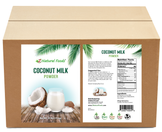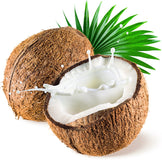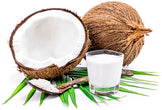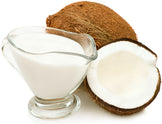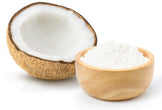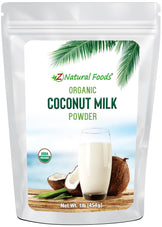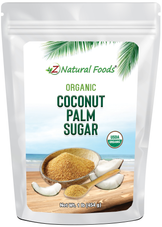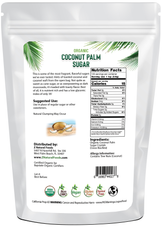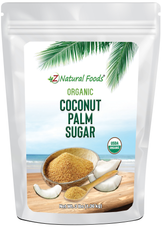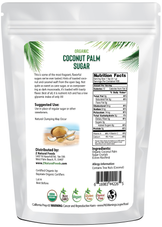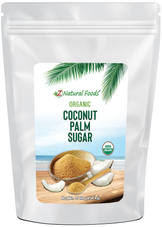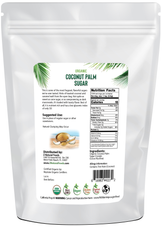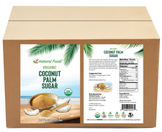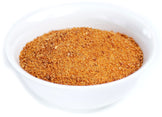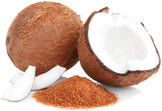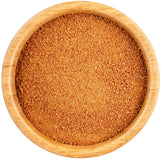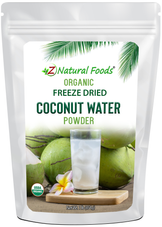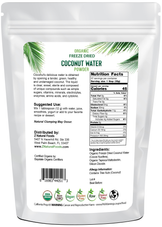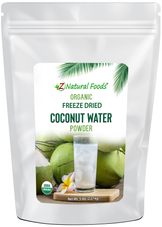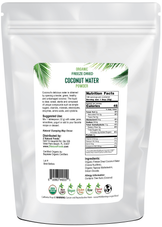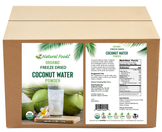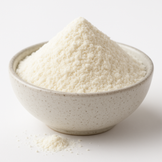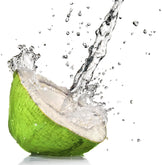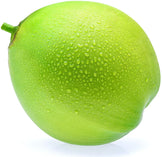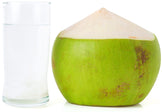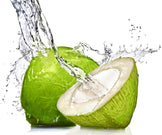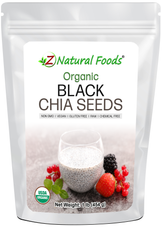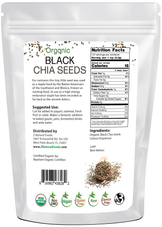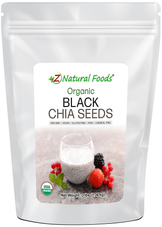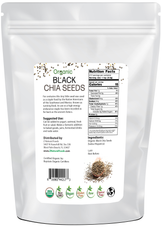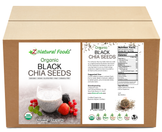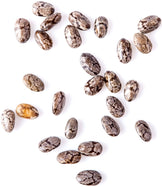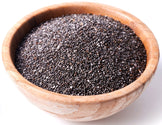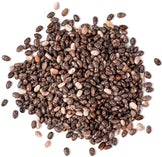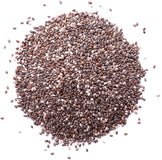Description
Description
Native to Southeast Asia, coconut trees are one of the most important trees in the world.
That’s because the coconut tree is highly versatile, earning the title ‘Tree of Life’ for it’s multiple uses, including portability, hydration, as a food source and even as a flotation device!
While there are many tasty uses that come from the coconut, three very popular uses are; coconut water, coconut milk and coconut cream.
What’s the difference between the coconut water, milk and cream?
It’s really pretty simple.
Although the coconut fruit can produce similar liquids in the form of coconut water, milk, and cream, the nutrition profiles and their uses vary. Coconut water is typically used for hydration, coconut milk is often used as an animal milk substitute or as a beverage, and coconut cream is often used as a dessert or thickening agent.
Here’s a look at the differences between coconut milk, coconut water, and coconut cream, and some common uses.
1. Coconut water
Coconut water is the mostly clear, sometimes cloudy liquid found inside the young coconut fruit.
Coconut water has become a very popular drink because of its naturally sweet taste and hydrating properties.
It’s a refreshing drink on a hot day, and locals in tropical regions often sell the drink straight out of its husk.
In fact, researchers with the Journal of the International Society of Sports Nutrition report that coconut water may support the treatment of dehydration caused by exercise and diarrhea. It is also popular among athletes as coconut water is often used to complement sports drinks.
Additionally, some experts claim coconut water may help support a normal blood pressure, possibly because coconut water is high in potassium and electrolytes.
You can get this delicious coconut water direct from a coconut husk or you are invited to try our organic freeze-dried coconut water.
2. Coconut milk
Coconut milk comes from grinding the fleshy part of the coconut and adding some water. The consistency is similar to cow’s milk, and it’s also pale white.
Naturally vegan, coconut milk is soy-free and gluten-free, and has recently grown in popularity because it is a dairy-free alternative for those who are lactose intolerant or allergic to casein (sodium caseinate) or animal milk.
In addition to cooking and baking, many people use coconut milk as part of a beauty regime, as it may help boost skin and hair health. Similarly, coconut milk has found widespread use as a face or hair mask base. Sometimes manufacturers will add stabilizers to ensure a smoother product and prevent the contents from separating.
We invite you to try our fresh Organic Coconut Milk powder because it is chock full of goodness. We dry our coconut at a low temperature to preserve all the naturally occurring enzymes, nutrients, and flavor. It is unsweetened, unadulterated and preservative free. Plus, it’s totally delicious.
3. Coconut cream
Coconut cream is traditionally made by shredding the coconut flesh and mixing it with a small amount of water.
The process of making coconut cream is similar to when you’re making coconut milk. The main difference is the amount of water used; less water leads to a thicker texture.
Consequently, coconut cream is used in recipes that require a thick consistency. Desserts like ice creams and smoothies flourish when used with coconut cream. You can also use it to make thick curries and stews.
Coconut cream is unsweetened, dairy-free, and low in carbs, making it a great choice for the health-conscious.
Coconut cream is easily made with our Coconut Milk powder by adding water. For a thicker cream, simply add less water.
Coconut Milk vs Coconut Water: Which is better for you?
Both coconut milk and coconut water come from the edible part of the coconut, and both coconut milk and water offer numerous health benefits.
Coconut milk and coconut water are healthy, and the choice mostly depends upon your goal. If you want to rehydrate, choose coconut water. If you want more nutrition and satiety in your beverage, coconut milk is your likely choice.
Despite their similar origins, coconut milk and coconut water are vastly different.
- Coconut water contains 94% water.
- Alternatively, coconut milk has only about 50% water, with high fat and protein content.
- Coconut water is higher in sodium, but coconut milk is higher in vitamins and minerals such as folate and manganese.
Ultimately, the beverage you choose depends on your needs.
For example, coconut water should be your go-to option if you need a quick hydration boost.
On the other hand, if you’re looking for a dairy substitute or need to add a coconut flavor to a recipe, coconut milk will work like a charm.
Is Coconut Water a Substitute for Coconut Milk?
Coconut milk is richer than coconut water because it comes from the pulp of coconuts. This is what gives coconut milk the delicious and nutritious higher-fat content.
It’s not uncommon to confuse the two, especially when used for culinary purposes. But what happens when a recipe calls for coconut milk and all you have is coconut water?
No, you cannot use coconut water in place of coconut milk for recipes.
- The reason is that coconut milk is thicker in consistency and has a higher calorie count than coconut water.
- Secondly, coconut water is essentially just that: water.
So, if a recipe calls for the creamy texture of coconut milk, sorry, but the alternative isn’t coconut water.
Because of its thick consistency, coconut milk is ideal for curries and smoothies. Conversely, coconut water comes jam-packed with electrolytes, making it an exceptional energy drink for athletes.
If you are out of Coconut Milk Powder, fortunately, depending upon the flavor and texture you are looking for, there are plenty of other options, including Whole Milk Powder, Cashew Milk Powder, Heavy Cream Powder, Oat Milk Powder, Sweet Cream Buttermilk Powder and Goat Milk Powder.
But, if you do have some coconut milk on hand, there is another option to explore.
Use Coconut Cream Instead of Coconut Milk
Coconut milk is the liquid derived from blending coconut flesh and water. It is thick, has a similar consistency to cow’s milk, and is a suitable substitute for lactose intolerance or vegan lifestyles.
Since coconut cream is a thicker liquid derived from the coconut milk, it’s not radically different from coconut milk except that you’ll use less water during blending.
The result is a thicker and creamier consistency compared to coconut milk. So yes, you can make coconut milk by diluting coconut cream with a bit of water.
Mostly, it is okay to use coconut cream instead of coconut milk. This is because they’re essentially the same products, except coconut cream is slightly thicker than coconut milk.
- For example, it would be best to use coconut milk in dishes that require a creamy base, like soups, stews, curries, and laksas.
- You can even use coconut milk as a dairy substitute in coffee or smoothies.
- It’s advisable to use coconut cream in desserts as a dairy-free alternative or as a garnish.
- If a recipe requires coconut milk and you have coconut cream, you can dilute the cream with some water to get coconut milk.
However, if you have coconut milk and a recipe requires coconut cream, you cannot substitute that.
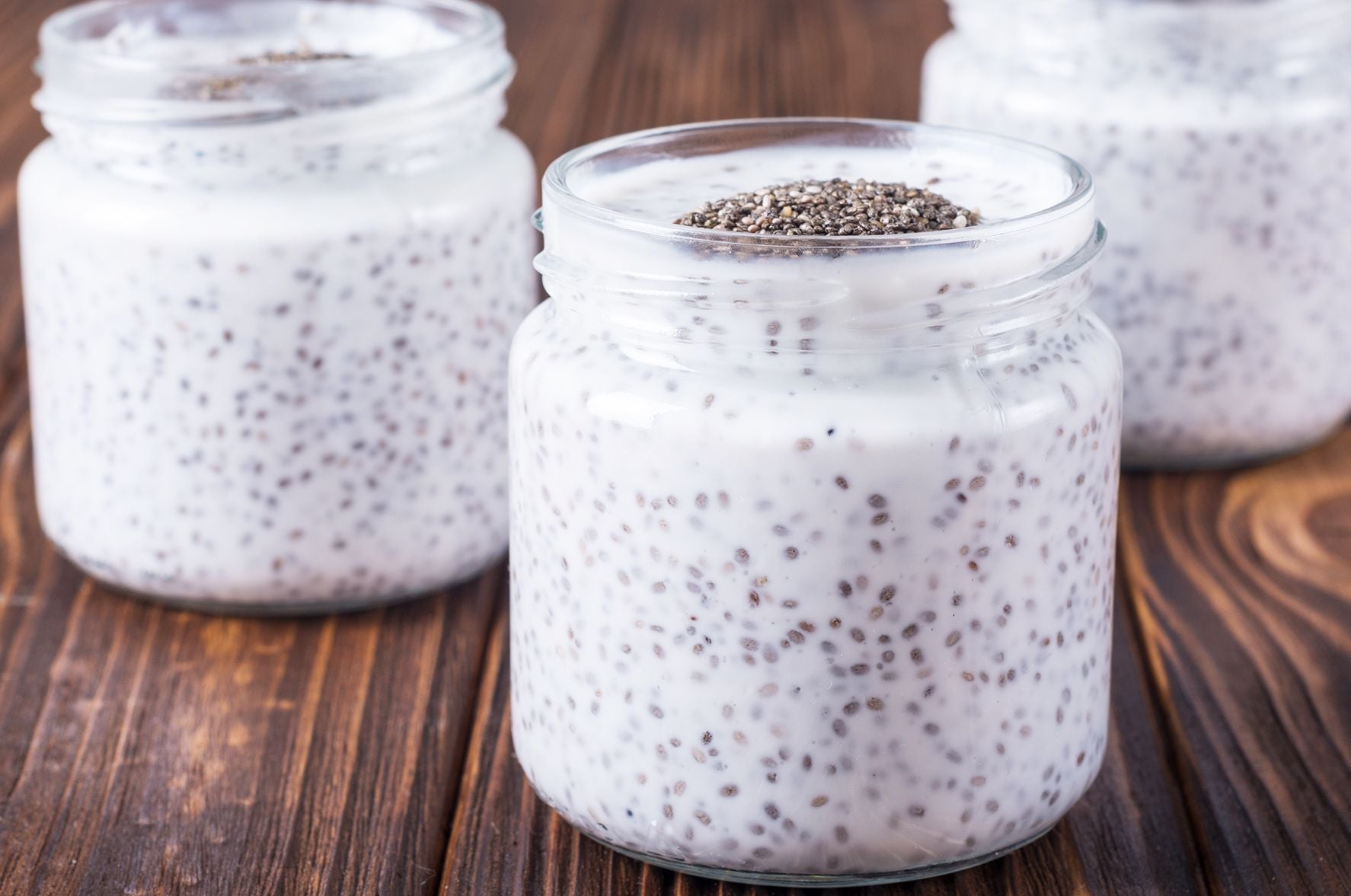
Coconut Water with Chia Seeds (with Coconut Milk or Coconut Cream):
This is a nutritious, delicious drink that has two basic options. The first option is mixing coconut water with chia seeds and using your favorite sweetener. Chia seeds are a source of Omega 3 fatty acids and are loaded with antioxidants, vitamins, minerals, and soluble fiber. Plus, chia seeds absorb much of the liquid and create a wonderful texture.
The second option is by adding coconut milk and includes everything in the first option. You basically just add coconut milk and adjust the amount of water to create your desired taste and consistency. This makes your beverage a more robust drink, adds nutrition and creates more satiety as desired.
Here’s what you need an how to make it.
Ingredients:
Coconut Water with Chia Seeds
- 1-1/2 tbsp Organic Coconut Water Powder
- 1 tsp Organic Chia Seeds
- 1 tsp White Sugar (or sweetener of your choice)
- 1 cup Water
Coconut Milk
- 2 tbsp. Organic Coconut Milk Powder
- 1/2 tsp White Sugar (or sweetener of your choice)
- 1/4 cup Water
To make Coconut Cream, add more coconut milk powder or reduce water.
Directions:
- Mix coconut water with chia seeds together in a glass, adjust sweetness as desired, and keep in a refrigerator for one hour or until cold. Enjoy as a cold beverage.
- Make coconut milk, by mixing all coconut milk ingredients together, mix well until all ingredients dissolved. Add on to coconut water with chia seeds, stir well and enjoy as a cold beverage or dessert
- Enjoy!
Coconut water, coconut cream, and coconut milk add to the coconut fruit’s astonishingly versatile arsenal of healthy products.
Whether it’s to rehydrate your body, substitute dairy products, or make delicious recipes, the three coconut liquids are a great addition to your pantry.
Sources
Harvard. (2021, July 6). Coconut oil. The Nutrition Source. Retrieved June 23, 2022, from https://www.hsph.harvard.edu/nutritionsource/food-features/coconut-oil/
Hill, A. (2020, September 4). Is coconut milk keto-friendly? Healthline. Retrieved June 23, 2022, from https://www.healthline.com/nutrition/is-coconut-milk-keto#types-to-avoid
Kalman, D. S., Feldman, S., Krieger, D. R., & Bloomer, R. J. (2012). A comparison of coconut water and a carbohydrate-electrolyte sport drink on measures of hydration and physical performance in exercise-trained men. Journal of the International Society of Sports Nutrition, 9(1), 1. https://doi.org/10.1186/1550-2783-9-1
Published by M. Ridder, & 13, J. (2022, January 13). Coconut water market value worldwide, 2017-2023. Statista. Retrieved June 23, 2022, from https://www.statista.com/statistics/673554/coconut-water-market-value-worldwide/
U.S. National Library of Medicine. (n.d.). Coconut water: Medlineplus supplements. MedlinePlus. Retrieved June 23, 2022, from https://medlineplus.gov/druginfo/natural/1261.html
Reddy, E. P., & Lakshmi, T. M. (2014). Coconut water-properties, uses, nutritional benefits in health and wealth and in health and disease: a review. Journal of Current Trends in Clinical Medicine and Laboratory Biochemistry, 2(2), 6-18. Retrieved June 23, 2022, from https://medlineplus.gov/druginfo/natural/1261.html



